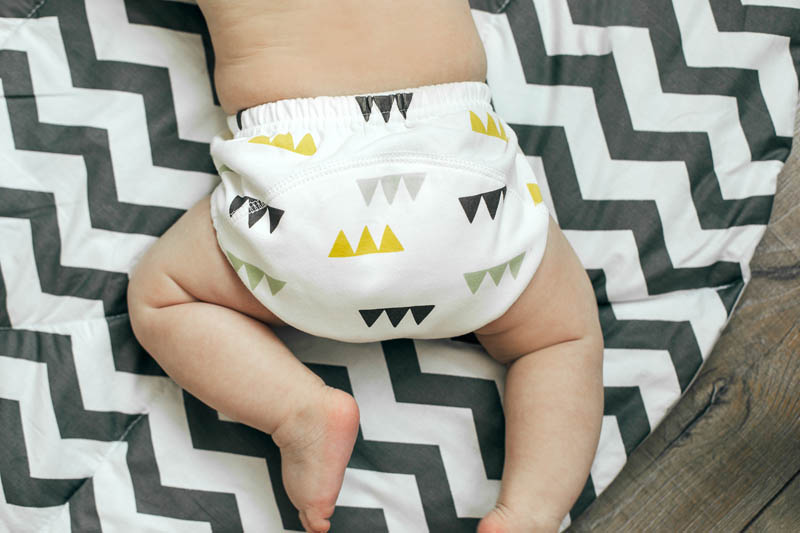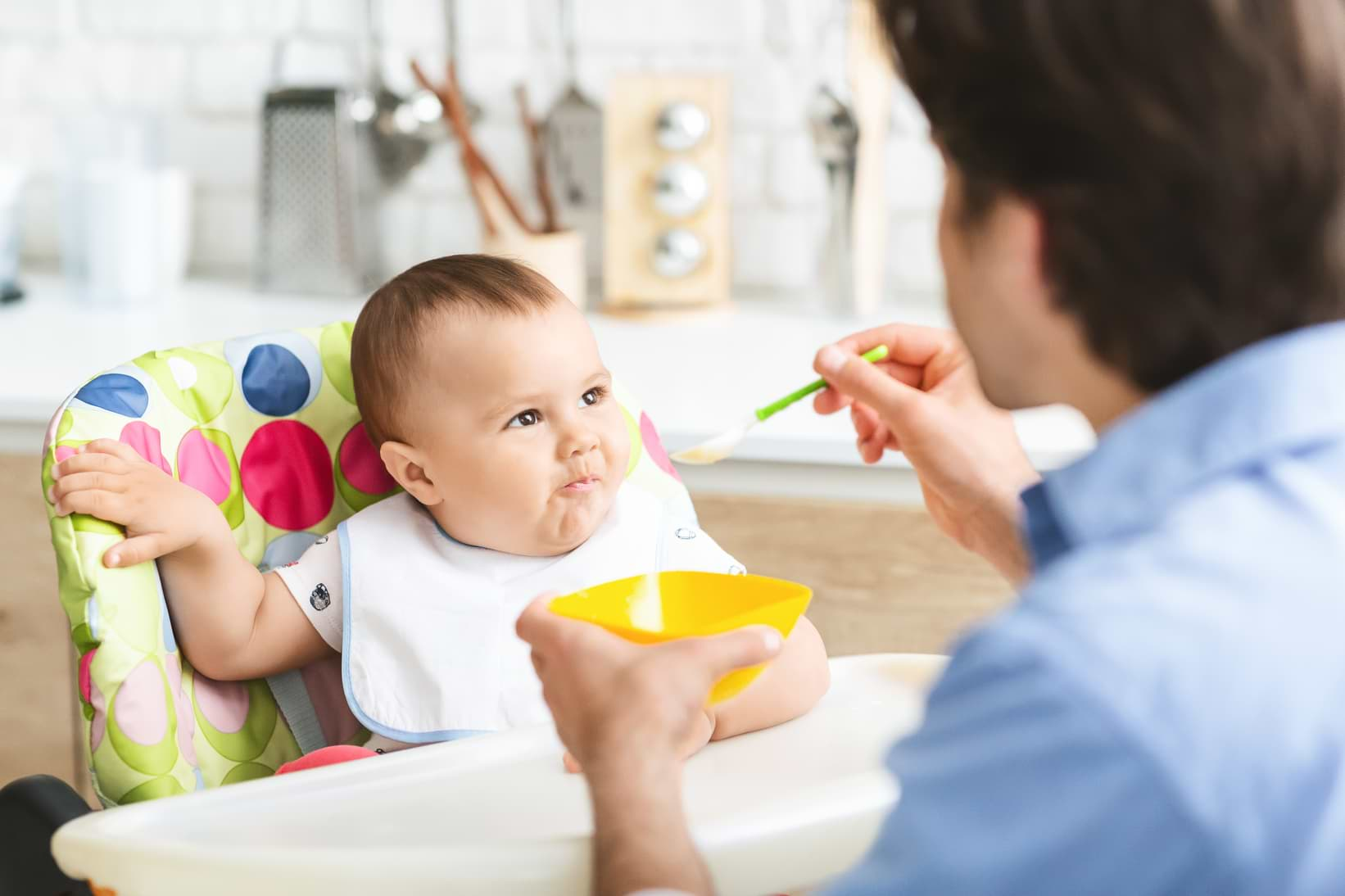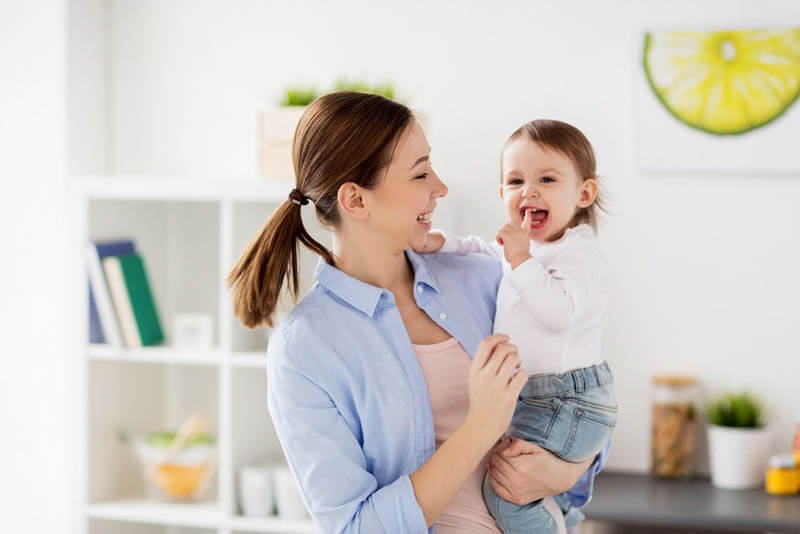Speech delay in toddlers is a common problem nowadays. However, not many parents know that your baby language development starts from the moment your baby is born.
You talk to your baby. Always. You’ve sung him/her a song when he/she was inside your belly. You’ve stroked him/her and talked to him/her when he/she was born. You are playing the ‘peek-a-boo’ game and talking to him/her when changing his/her diaper or bathing. You whisper and murmur and hum when rocking and getting him/her to sleep. And when your baby gurgles and babbles, and coos happily, you repeat those sounds, mimicking the tone. It’s very entertaining, isn’t it? But it’s also extremely important for baby brain development!
This cute little head just sponges those tones, sounds, and the language he/she will use when saying her first words. And parents play a huge role here as the more they speak with their baby, the higher the chance that stronger conversational and language skills will form if compared to kids whose parents don’t speak to them often.
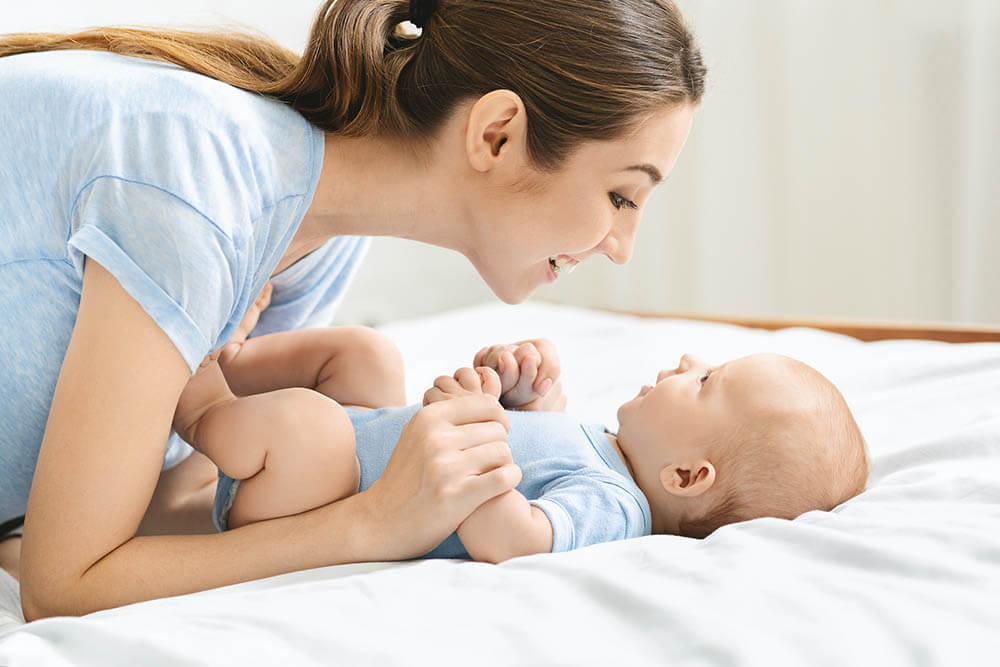
Experts claim that the best way to speak to your baby is using baby talk, which is a singy-songy way like “My sweeety, how are youuuu todaaaay?” The intonation may seem funny but this is the way language develops in your child.
Why Is Baby Talk Good for Baby’s Brain?
Have you ever noticed that infants usually pay more attention to adults who use baby talk and respond more willingly than during a normal ‘adult’ conversation? This is because this high-pitched and exaggerated tone of your voice just lights up the baby’s mind and makes him more cheerful.
Baby talk has serious advantages that among others include a boost in early language development and learning which becomes more noticeable when babies grow. Experts from the University of Connecticut and the University of Washington have made interesting research. They collected thousands of 30-second talks between parents and their little babies, placing audio-recording vests on 26 babies which captured sound and language 8 hours a day. Then experts used special software to analyze and count times when and how often parents used baby talk.
In April 2014 the study at Developmental Science concluded that the more baby talk they heard from their parents, the faster babies started babbling, which consequently had amusing results at an older age. So when the scientists checked in with these babies at age of two, they were surprised at how significantly frequent baby talk had boosted the baby’s vocabulary, regardless of the socioeconomic status of their parents. Toddlers aged two who had heard lots of baby talk knew 433 words on average, while those kids whose parents were more silent knew around 169 words. Looks amazing, doesn’t it?
Babies Love Listening to Other Babies
Another study as of March 2015 conducted by scientists from Université du Québec à Montréal and McGill University concluded that babies like listening to other babies talking much more than to adult conversation. It was an interesting discovery. Babies can’t say what they are thinking of, and that is why researchers formed a method that helped them to determine kids’ preferences. They had a special device play a range of repeating vowels that mimicked the sounds produced by either another baby or a woman.
Then the researchers estimated for how long every type of sound held babies’ attention and observed that the “baby” sounds held their attention for around 40% longer time. This also led to increased reactions in babies who were listening to these sounds, such as lip moving and smiling. SO the researchers concluded that such an attraction to sounds made by other babies may help induce learning and further development of speech.
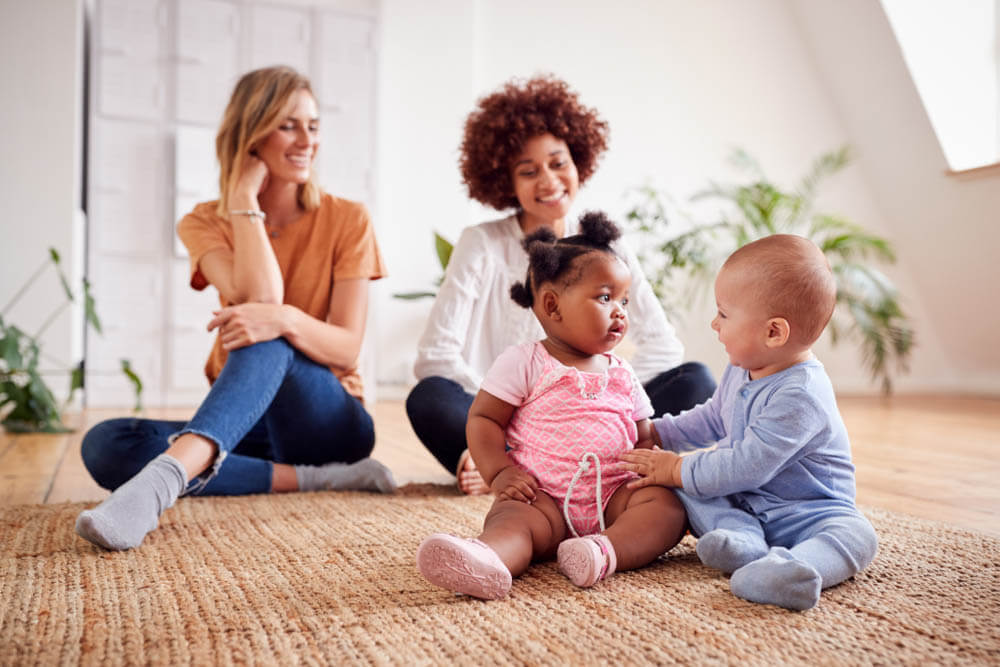
Babies Can Learn from Listening to Words in Other Languages
It’s the sounds of their native language that help babies build their vocabularies. Even if they don’t understand the words yet, some exaggerated sounds of baby talk were proven to help baby’s brain model the motor and mouth movements before they start speaking and practice some early sounds.
Another interesting study as of July 2014 that was published in Proceedings of the National Academy of Sciences showed interesting results. Scientists had 57 babies placed into a brain-activation scanner and listen to a range of syllables from their native (English) and non-native (Spanish) language. The equipment recorded brain activity in those areas of the brain which are responsible for producing speech.
Thus, the study concluded that when infants listen to baby talk, their brains start developing faster and they may start practicing language skills earlier.
Language Development and Speech Milestones
It’s no secret that every child starts speaking at his/her own time and pace. Despite that, there are general milestones that can be some sort of a guide for parents to track their babies’ progress and see problems when developing language in toddlers. Also, these milestones help healthcare professionals observe whether the baby has any issues and needs medical assistance.
0-3 months
- Makes cooing sounds;
- Smiles or reacts when spoken to;
- Smiles when mom appears;
- Recognizes mom’s voice;
- Cries in a different way for every other need.
3-6 months
- A variety of sounds: babbling, gurgling;
- Moves his/her eyes to the direction the sounds come from;
- Expresses pleasure or dissatisfaction with his/her voice;
- Pays attention to music and tunes;
- Notices toys that make sounds.
6-12 months
- Starts saying several words like “mama”, “dada”;
- Starts imitating the sounds of speech;
- Recognizes some common items which were previously named, for instance, “cup”;
- Looks in the direction where sounds come from;
- Understands simple requests, for instance, “give me”, “come here”, etc.
12-18 months
- Says up to 10 words;
- Understands things, instruction, etc. followed by gestures;
- Knows and recognizes the names of objects, toys, parts of the body, and familiar people.
18-24 months
- Asks simple one- and two-word questions;
- Says simple phrases;
- Says around 50 words;
- Understands simple questions and follows simple instructions;
- Speaks in such a way that at least half of the talk is understood by parents.
2-3 years
- Knows descriptive adjectives, such as “big” and “small”, “happy” and “sad”;
- Knows pronouns;
- Is aware of simple spatial concepts;
- Answers uncomplicated questions;
- Uses sentences that contain 3 words;
- Starts using past tense and plurals;
- Speech becomes more accurate but strangers still cannot understand much of what is being said.
3-4 years
- Identifies colors;
- Uses a variety of speech sounds but may distort the more difficult ones;
- Uses consonants;
- Can group and describe the use of objects;
- Uses verbs with “-ing” endings;
- Answers uncomplicated questions;
- Expresses feeling and ideas;
- Uses fun language;
- Repeats sentences.
4-5 years
- Uses irregular verbs in the past tense;
- Understands more complex questions;
- Can describe how things are done;
- Answers questions that start with “why”;
- Can categorize items and list them;
- Speech is overall understandable but there can be some pronouncing errors in complex words.
5 years
- Takes part in a conversation;
- Understands rhyming and uses imagination to make up stories;
- Uses longer sentences which can also be complex and compound;
- Describes objects in greater detail;
- Understands sequences.
What Can Parents Do to Help Their Baby Develop Speech?
There are ways parents can encourage baby speech development, and we have compiled a list of the most entertaining and fun activities that promote learning:
- Start looking through baby books with big and nice pictures. It’s not necessary to read the words – talking will be enough;
- Sing nursery rhymes and play interactive games (e.g. peek-a-boo);
- Use baby talk more often and make noises;
- In other cases don’t forget to talk clearly and slowly and use simple sentences for better understanding. Also, talk about your everyday activities even with newborns;
- Make faces and have fun together with your little one;
- Provide your kid with more opportunities to talk, ask various questions, and let him/her lead the conversation.
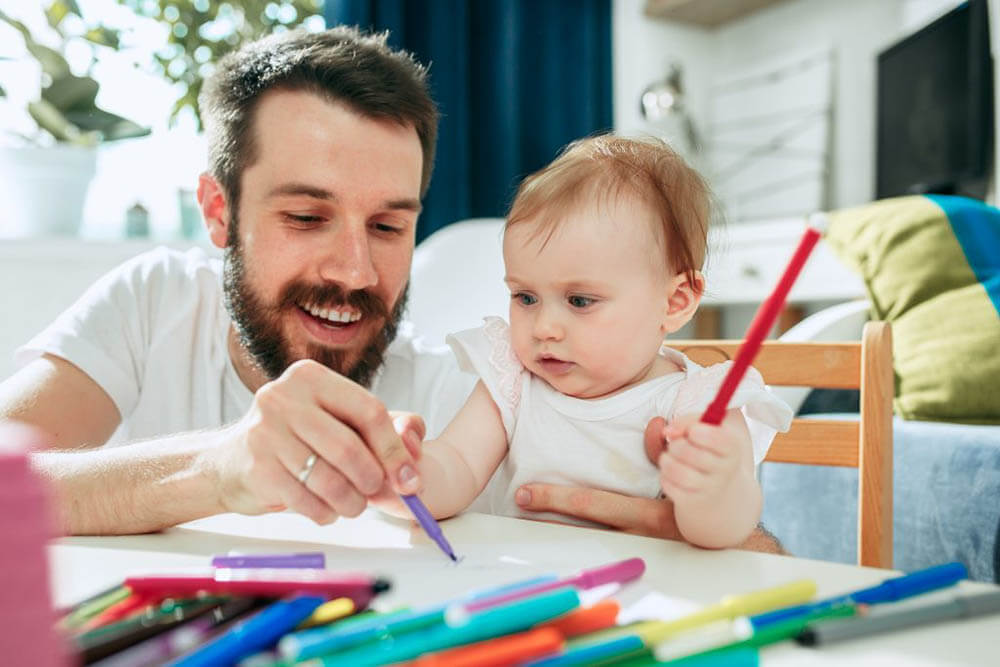
Don’t:
- Put pressure on your child when he/she is learning new things;
- Criticize him/her if they made a mistake while pronouncing the word or using wrong words instead of correct ones;
- Replace conversations with your child with TV shows or cartoons.
When to Seek Medical Attention?
Consult a healthcare professional if:
- Your child doesn’t make any attempts to communicate with you by using sounds, syllables, gestures, especially when he/she wants something by the age of 12 months;
- Your child’s vocabulary is poor, or he/she doesn’t combine words by the age of 24 months.
Final Words
To boost your baby’s language development all you have to do is just talk. Talk about everything you see. Talk about everything you do. Read books together, sing songs, make up stories. Teach your little one to imitate animal sounds and simple actions like clapping his/her hands and tapping his/her feet. Show your baby that you are very happy and joyful when he/she speaks as this will encourage more talk. Listen to the sounds your child is making and repeat them. Use baby talk but don’t overdo it when your baby is getting older. Just remember that kids learn by imitating us, the parents.
All the recommendations and tips listed here are based on the information provided by a range of highly respected institutions, among which are CDC (Centers for Disease Control and Prevention) and AAP (the American Academy of Pediatrics).
